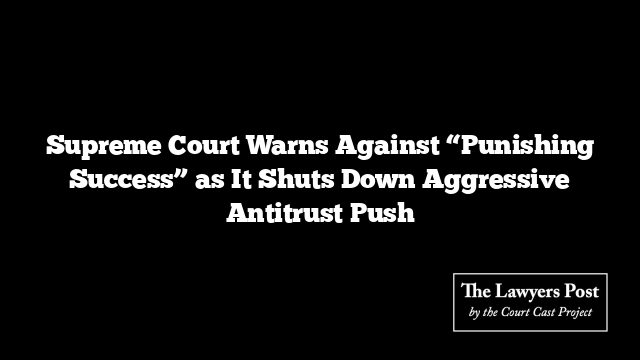In a ruling that echoed both economic realism and constitutional restraint, the Supreme Court has cautioned regulators against letting zeal cloud judgment. At the center of it all: a long-running antitrust dispute that tested the boundaries of what it means to dominate a market—and whether doing so lawfully should invite punishment.
The case—originating from a 2010 complaint by Kapoor Glass against Schott Glass India—accused Schott of exclusionary discounts, discrimination against smaller players, product-tying, and supply refusal. Acting on a Director General’s report, the Competition Commission of India (CCI) had slapped Schott with a ₹5.66 crore penalty. But the now-defunct COMPAT (Competition Appellate Tribunal) found the penalty unsustainable, citing procedural gaps and the absence of actual harm to the competitive fabric.
That should have been the end. But the CCI and Kapoor Glass pushed on—up the judicial ladder to the Supreme Court.
On Tuesday, Justices Vikram Nath and Prasanna B Varale closed the chapter with unmistakable clarity: “Dominance isn’t a crime. Abuse is.”
In their view, India’s competition law must avoid turning into a blunt instrument wielded against efficiency and scale. With protectionism rising in the West and global capital seeking new homes, the Court stressed the urgent need for regulatory maturity:
“Heavy-handed enforcement,” the judgment said, “risks derailing India’s ambitions to become a global hub for manufacturing and technology.”
In other words: go after misconduct, not market success.
The Court underscored a simple but powerful economic truth—being big is not inherently bad. Size, it said, might just be the outcome of innovation, investment, and scale—qualities India must not discourage if it hopes to emerge as a serious global player.
“If mere size or success were treated as offences,” the Court noted, “the law would defeat itself: freezing capital, penalising productivity, and impoverishing the very public it intends to serve.”
More than just a verdict, the ruling signaled a regulatory philosophy—one that privileges evidence over assumption, effects over optics, and economic freedom over punitive instinct.
India wants to attract investment, high-tech manufacturing, and next-generation industries. To do that, the Court made clear, it must avoid wielding antitrust laws like a sledgehammer.
The judgment may not have rewritten the law—but it reasserted what the law was always meant to be: a shield against genuine harm, not a sword against legitimate success.





